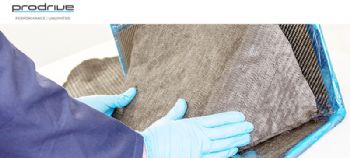
Oxfordshire-based Prodrive (
www.prodrive.com) is working with lightweighting and materials researchers at the University of Sheffield Advanced Manufacturing Research Centre (AMRC) to improve its processes for manufacturing recyclable composite components that extend useful lifetimes and reduce tooling costs.
Founded in 1984 and employing almost 500 people in the UK, Prodrive develops innovative engineering solutions for the automotive, aerospace and marine sectors.
It also designs and manufactures lightweight composites with a wide range of applications in these and other specialist sectors.
The company has been working in collaboration with research engineers at the AMRC on its P2T (Primary To Tertiary) philosophy, which is used for manufacturing recyclable composite components that can satisfy specific end-of-life requirements (Directive 2000/53/EC) without compromising the performance of the original parts.
It not only simplifies recycling but also gives a composite material the potential to have three or more useful lifetimes.
Hannah Tew, AMRC Composite Centre partnership leader, said that her team has been working with the company to advance its recyclable composite process closer to full production.
This has primarily focused on: allowing for automation; making it possible to achieve medium to high volumes at substantially lower costs; looking at the recyclable nature of the materials used and increasing the technology’s attraction to other industries.
She said: “The results from our initial press trials look promising, and we’re very much looking forward to supporting Prodrive in automating the process going forward.”
As P2T composites do not require heat or pressure during manufacture, there is no need for an autoclave, which reduces costs and enables production to be scaled up without major investment.
The process uses a reactive thermoplastic resin instead of a thermosetting type; a plastic monomer is reacted with a catalyst in the presence of the fibres to produce a cured laminate.
Prodrive believes it is the first to develop this technique with recycled fibres, which emerged through a development programme with an automotive OEM customer requiring a high-performance structural material with lower environmental impact than conventional composites.